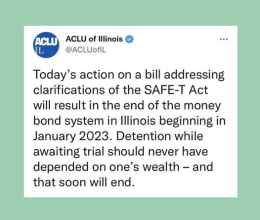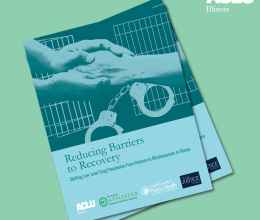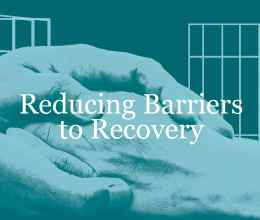
Overcrowding in Illinois prisons is up, with more than 40,000 prisoners in a system built for only 32,000. While Illinois spends more than $1.4 billion on prisons each and every year, nearly half of formerly incarcerated people return to prison within three years. The reasons why are clear: overreliance on punitive sentencing, underinvestment in education and employment opportunities in communities, and cutting or underfunding programs proven to reduce recidivism.
Whole communities are being robbed of their economic and social contributions due to our out-of-control criminal justice system. Instead of warehousing large populations in overcrowded prisons and jails, we need to focus on giving people the tools they need to avoid lifelong entanglement in the justice system: tools like education, job skills training, and cognitive behavioral therapy.






